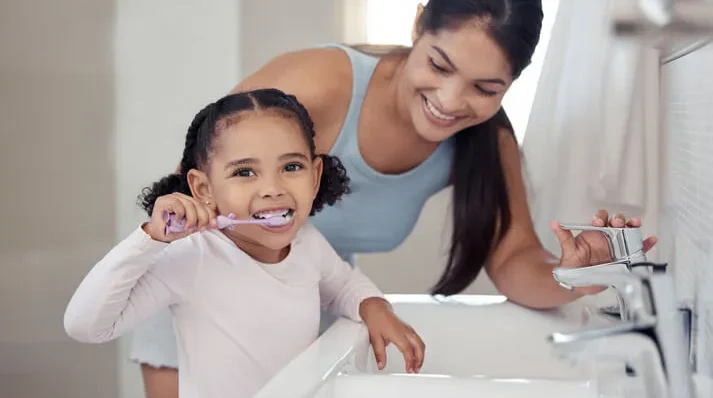Oral hygiene is crucial for maintaining overall health, and instilling good habits in children from an early age is essential. Teaching children proper oral hygiene not only prevents dental issues but also sets the foundation for a lifetime of healthy habits. In this comprehensive guide, we’ll delve into effective strategies and techniques for teaching children oral hygiene, ensuring their teeth and gums stay healthy and strong.
Table of Contents
ToggleUnderstanding the Importance of Oral Hygiene
Before diving into teaching methods, it’s important to understand why oral hygiene matters. Poor oral hygiene can lead to various dental problems such as cavities, gum disease, and bad breath. Additionally, research has shown that oral health is linked to overall health, with poor oral hygiene potentially contributing to conditions like heart disease and diabetes. By emphasizing the importance of oral hygiene to children, we can motivate them to take care of their teeth and gums.
Start Early
The earlier you begin teaching children about oral hygiene, the better. As soon as a child’s first tooth appears, it’s time to start brushing. Use a soft-bristled toothbrush and a rice-sized amount of fluoride toothpaste for children under three years old. As they grow, you can gradually increase the amount of toothpaste to a pea-sized portion. Starting early helps children become accustomed to the routine of brushing their teeth.
Lead by Example
Children often learn best by observing and imitating adults. Therefore, one of the most effective ways to teach oral hygiene is by leading by example. Let children see you brushing and flossing your teeth regularly. Make it a family activity by brushing together in the morning and before bedtime. When children see that oral hygiene is a priority for adults, they are more likely to take it seriously themselves.
Make It Fun
Learning about oral hygiene doesn’t have to be dull. Incorporate fun and engaging activities to make the experience enjoyable for children. Use colorful toothbrushes and flavored toothpaste to make brushing more exciting. Sing songs or create a brushing dance to make the routine more entertaining. Additionally, consider using educational games or apps that teach children about the importance of oral hygiene in a playful manner.
Educate Through Books and Videos
There are numerous children’s books and videos available that teach the importance of oral hygiene in a way that’s easy for kids to understand. Utilize these resources to educate children about the role of brushing, flossing, and visiting the dentist in maintaining a healthy smile. Choose books with vibrant illustrations and relatable characters to capture children’s attention and keep them engaged.
Set a Routine
Consistency is key when it comes to oral hygiene. Establish a daily routine that includes brushing teeth at least twice a day and flossing once a day. Consistent reinforcement of these habits helps children understand that oral hygiene is a regular part of their daily lives. Set specific times for brushing, such as after breakfast and before bedtime, to make it easier for children to remember.
Use Positive Reinforcement
Praise and positive reinforcement can go a long way in encouraging children to practice good oral hygiene. Celebrate their successes, whether it’s remembering to brush without reminders or sitting calmly during a dental appointment. Consider using a reward system, such as a sticker chart, where children can track their oral hygiene habits and earn rewards for consistent behavior.
Teach Proper Technique
Proper brushing and flossing technique are essential for effective oral hygiene. Teach children the correct way to brush their teeth, including using gentle circular motions and reaching all surfaces of the teeth and gums. Demonstrate proper flossing technique and supervise children until they are able to do it independently. Emphasize the importance of spending an adequate amount of time brushing and flossing to ensure thorough cleaning.
Make Dental Visits Positive Experiences
Regular dental check-ups are an essential part of maintaining oral health. However, many children may feel anxious or fearful about visiting the dentist. Make dental visits positive experiences by choosing a pediatric dentist who specializes in treating children and creating a comfortable environment. Prepare children for dental visits by explaining what to expect and addressing any concerns they may have. Praise them for their bravery and reward them after the appointment to reinforce positive associations with dental care.
Conclusion
Teaching children oral hygiene is a vital aspect of their overall health and well-being. By starting early, leading by example, and making oral hygiene fun and engaging, parents and caregivers can instill lifelong habits that promote healthy teeth and gums. By emphasizing the importance of oral hygiene, teaching proper techniques, and making dental visits positive experiences, we can set children on the path to a lifetime of healthy smiles.

